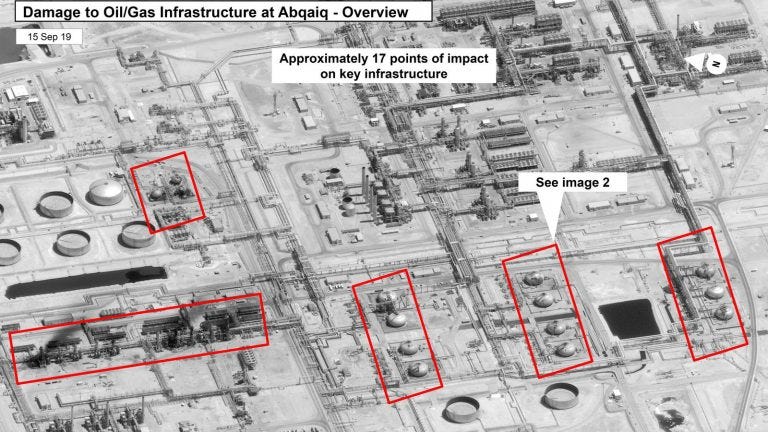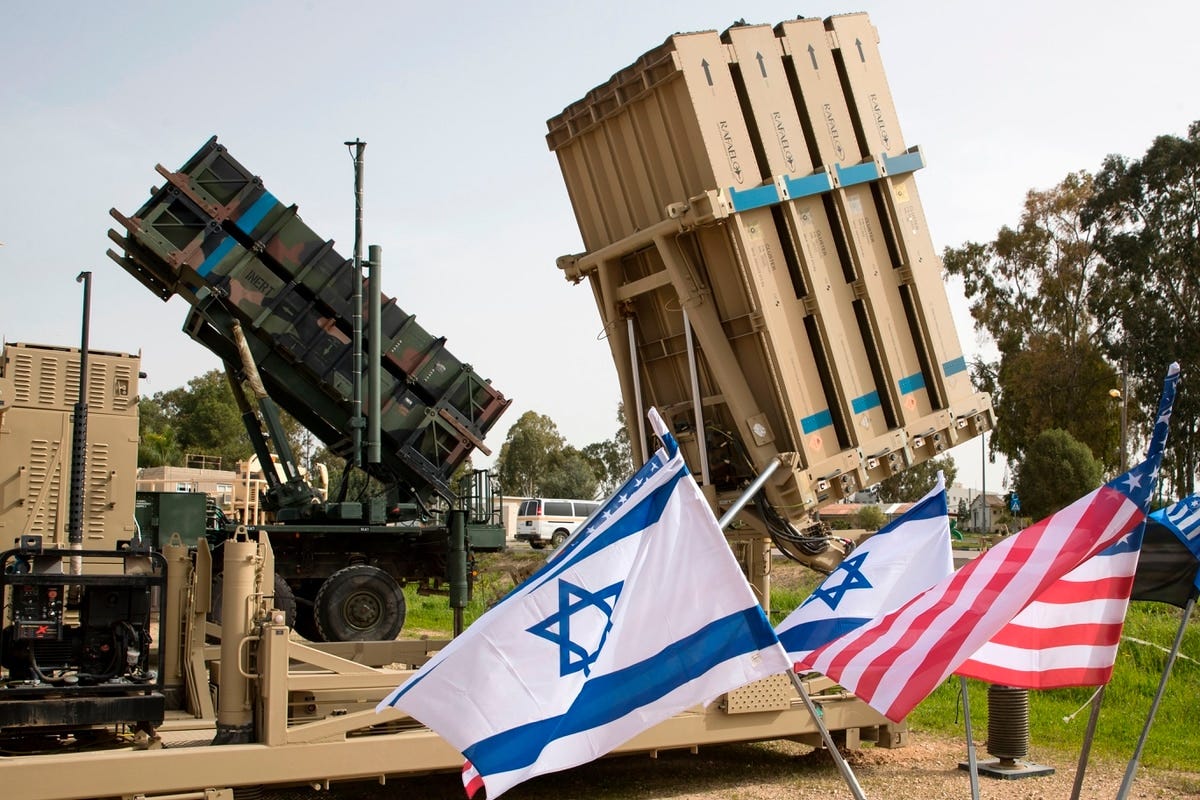The well-respected Israeli think tank, the Institute for National Security Studies (INSS) has proposed that Israel ask for a security treaty with the United States. The proposal is in an editorial form and has no signatures attached to it. Therefore it isn't clear if the proposal comes from the INSS Director, Manuel Trajtenberg, or is the consensus of the organization's research staff. Such a defense treaty has long been opposed by most of Israel's security establishment on the grounds it would inhibit Israel's freedom of action and tie Israel irrevocably to the United States.
INSS was originally founded inside Tel Aviv University. Its first head was Major General Aharon Yariv. When founded it was known as the Center for Strategic Studies. The name was changed to the Jaffee Center for Strategic Studies and, in 2006 to the current name. Its most dynamic head until 2021 was General Amos Yadlin. The current Executive Director, Manuel Trajtenberg does not have a military or intelligence background. INSS is no longer part of Tel Aviv University.
According to the policy proposal, the reason for Israel to pursue a defense treaty is ostensibly because Saudi Arabia is pursuing such a treaty and that without Israel also applying for a defense treaty, the Saudi proposal won't be accepted. It is quite true that there is serious opposition to Saudi Arabia in the US Congress, mainly on the basis of human rights complaints. A defense treaty would require a two thirds vote of approval in the US Senate. Saudi Arabia on its own would fail to get Senate approval and "bundling" an Israeli treaty with a Saudi one, is probably not possible, even though INSS somehow thinks it can be done.
It is by no means clear why Israel would want a defense treaty, given its strong need to have freedom of action toward Iran, which will soon start producing nuclear weapons. To begin with, despite many and sundry claims by the United States that it would never allow Iran to possess nuclear weapons, the truth of the matter is different. The current administration, for example, is helping Iran move forward on the nuclear path by offering numerous concessions to the Iranian regime even before any agreement on Iran's nuclear program is concluded. A good example are the findings of the IAEA on Iranian violations of existing nuclear inspections which the Biden administration has simply swept under the rug.
For Israel the question is difficult in that it can hardly wait until Iran deploys nuclear weapons, at which point trying to eliminate them would potentially involve the use of nuclear weapons either by Iran or preemptively by Israel. This is what Netanyahu mentioned at the UN, although his remarks were "walked back" by the Prime Minister's office. It is hard to see what value a defense treaty would have in the context of Iran's push for nuclear weapons and long range missile delivery systems.
Similarly it is hard to see how Saudi Arabia would benefit from a US defense treaty, since the US is unlikely to bomb Tehran to stop its nuclear weapon's buildup. A Saudi-US defense treaty would potentially help the Kingdom if Iran directly attacked the country. But even when it has done so, as the attacks on the Abqaiq and Khurais oil installations that came directly from Iranian territory, Washington did nothing and said very little.
Of course the whole problem for Saudi Arabia gets complicated when Iran uses proxies to launch ballistic missiles, drones and cruise missiles on Saudi targets. Most of these originate in Yemen, some from Iraq. The US offers little help to combat such attacks.
There are other complications for Israel as well. Would a defense treaty apply to attacks by non-state actors such as Hezbollah, Hamas, Islamic Jihad, or attacks originating from the Palestinian West Bank? The US would never agree to a text that obliged it to come to Israel's aid under terrorist attack. In fact, the US response to terror attacks against Israel and Israeli citizens has always been subdued at best.
Presumably a defense treaty would protect Israel from a Russian attack, but a direct Russian attack is extremely unlikely. However, the Russians would see a defense treaty between the US and Israel as Israel taking sides in the bigger geostrategic struggle between Washington and Moscow. This could encourage the Russians to step up arms supplies to Syria and Iran, something that does not serve Israel's interests. In practice Israel and Russia have found practical ways to cooperate and to try and avoid confrontation. Whether that will hold in the long run is an open question, especially as Russia starts supplying Iran with advanced weapons including the Su-35.
INSS makes the point that a defense treaty might facilitate defense technology cooperation with the United States. In many ways Israel is a brain trust already for the United States and is able to pioneer in many areas important to US security. For example, Israel's Ballistic Missile Defense Organization is partnered with the US Missile Defense Agency and cooperates on air defenses including, most recently, exoatmospheric defense in the form of Arrow-4 development. Israel is also rapidly developing sophisticated sensor to shooter technologies, advanced microelectronics and artificial intelligence. These and other technologies are already sought after by the US Defense Department and by US defense companies, not to mention important US commercial companies including Intel, Microsoft, Google and many others. There is no reason to think that a defense treaty would improve technology sharing or cooperation.
INSS says that "As an official ally, Israel's access to advanced American weaponry and unique technologies would be guaranteed for the long term, thereby maintaining Israel’s qualitative military edge over time." Unfortunately defense treaties do not guarantee or assure access to US weapons or unique technologies. Technology sharing is always a matter of national interest that is defined by time and circumstances. Take the case of the F-35 stealth fighter as a case in point. This is America's fifth generation fighter aircraft, stuffed with exotic technology. Lockheed, the US defense giant that manufactures the F-35, desperately wanted Israel to adopt the F-35 and not buy a new, advanced version of the F-15. Lockheed believed, correctly, that if Israel incorporated the F-35 as its top front line fighter, other customers would gravitate to the F-35. Lockheed was right. Lockheed, nor the US, needed a defense treaty to do the deal, and in fact Israel got concessions on technology that exceed cooperative deals with major European and Japanese partners.
What isn't clear is why INSS decided that Israel needs a defense treaty now? If it was to help out Saudi Arabia there is no reason to believe it would do so. There is little evidence that favors a US-Israel defense treaty, unless the real idea is to make Israel depend on the US for its future security. If that is the point, Israel should be wary of depending on US help. It has to defend itself.
In short, a US-Israel defense treaty is an untimely idea.






In hindsight, maybe it was/is not such a bad idea, though untimely, given lack of US ammo and weapon systems.
I don't fully get the gist of this. What's the problem with Irân developing nuclear weapons? France, Rossiya, USA, Israel, Bhārat Gaṇarājya, Zhōngguó among others have all already developed them, so what vetoes Irân to obtain the same? Not acceptable to treat Irân as if it has less rights than other countries.
Especially after half a century of assassinations of scientists, soldiers and politicians and all kind of sabotage, Irân persists and insists and is now near to reach its nuclear goal, in the face of adversaries who in the past employed these same unethical tactics to cause a similar nuclear attempt by Irāq fold. So, respect to them.
I mean, I thought Irân were now in the good guys' camp, with their ongoing military collaborations with Rossiya and what not